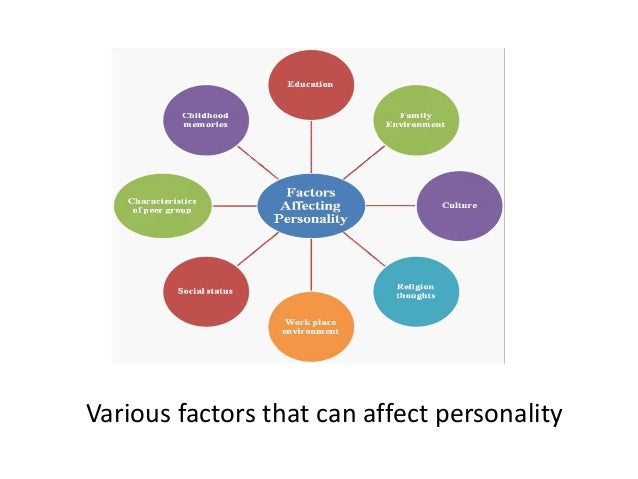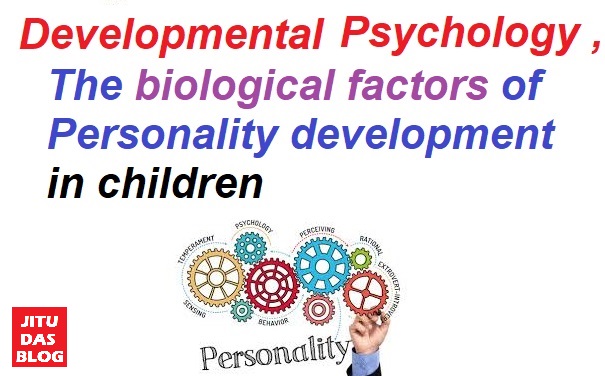Biological factors contributing to the response to cognitive training
Table of Contents
Table of Contents
Are you curious about how biological factors impact the formation of personality? It’s a complex topic with many different factors to consider. In this article, we’ll explore the various biological factors that contribute to personality development and how they play a role in shaping who we are.
Developing a sense of self can be challenging, and there are many contributing factors. In addition to environmental influences, biological factors also play a crucial role in shaping personality. Even though many people are unaware of it, biological and genetic factors are essential influences, barring any significant outside factors such as trauma or life events.
Biological factors have a significant impact on personality, which can affect the development of traits such as introversion, extraversion, neuroticism, and conscientiousness. Personality traits, in turn, shape our behavior and overall approach to life, such as social interactions, decision-making, and more.
Several factors contribute to the biological foundation of personality development, including genetics, brain chemistry, and hormones. Genes can tend to influence temperament and other innate characteristics such as intelligence and creativity. Hormones like cortisol and testosterone can impact our emotional reactions, social behaviors, and even aggression levels.
My Personal Experience with Biological Factors and Personality
As someone with a background in genetics, I’ve always been interested in the influence that our biology has on our lives. I believe that genetics play an integral role in our personality development through the traits and characteristics we inherit.
Genetics aside, I also think that hormones and other physical factors can play an important role. For example, I’ve noticed that when I’m extremely stressed or anxious, I tend to be more irritable and more prone to anger – a typical reaction triggered by an increase in cortisol levels.
Understanding How Brain Chemistry Shapes Personality
Brain chemistry is another essential factor when it comes to personality development. Neurotransmitters, such as dopamine and serotonin, play a critical role in regulating mood and motivation. There might be more to the story of depression rather than just environment influence as researchers have discovered a genetic link as well. Personality disorders such as antisocial personality disorder have a correlation to a lack of activity in frontal brain regions ruling impulse control.
How Environment Shapes Personality through Biology
While genetics, hormones, and brain chemistry all contribute to personality, environmental factors can also play a role in shaping who we are. For example, growing up in an abusive household may lead to higher cortisol levels and susceptibility to anxiety disorders later in life. Childhood neglect plays a significant role and has been a crucial part of understanding epigenetics. Epigenetics is an exciting aspect of genetic studies as it focuses on how environment impacts gene expression via marking of genes as active or inactive.
How to Nourish Your Personality
If you want to shape your personality or help someone develop his personality, it’s essential to recognize influential factors. There should be an emphasis on taking care of your body through proper nutrition and exercise, mindset, mental wellness, and working to improve relationships. Therapy, mindset, and self-help books could be great sources that could help someone unlock what personality they have been waiting to unravel their whole life.
Conclusion of Describe Biological Factors That Influence The Formation Of Personality
In summary, understanding the biological factors contributing to personality development is a complex and intriguing science. Genetics, brain chemistry, hormones, and environmental effects play crucial roles in shaping who we are, influences that are often overlooked. Though it is essential to keep learning and growing, personality research is always advancing as well as the habits that you cultivate in your everyday life could help change emotional and social experience.
Question and Answer
What are the primary biological factors responsible for personality development?
The primary biological factors impacting personality include genetics, hormones, and brain chemistry. Other epigenetic factors like prenatal factors, nutrition, and environmental teratogens cannot be ignored.
What role does genetics play in personality development?
Genetics play a significant role in personality development through inheritance of traits and characteristics mostly through gene SNPs or Single Nucleotide Polymorphisms.
What are some environmental factors that impact personality development?
Environmental factors that can affect personality development include childhood experiences, socio-economic status, and cultural influences which can lead to stressors such as exposure to trauma, and maladaptive parenting.
How can you shape your personality?
You can shape your personality by developing good habits such as exercising regularly, eating healthy meals, sleeping well, being mindful, nurturing healthy relationships, and investing in your personal and professional development. Mindset and self-help books could be great sources that could help someone unlock what personality they have been waiting to unravel their whole life.
Gallery
💋 Environmental Factors Affecting Personality. What Environmental And

Photo Credit by: bing.com / personality factors affecting environmental individual development affect biological
JItu Das’s Blog: Developmental Psychology The Biological Factors Of

Photo Credit by: bing.com / developmental
Biological Factors Contributing To The Response To Cognitive Training

Photo Credit by: bing.com / biological factors cognitive contributing impairment mild
💐 Biological Factors Affecting Development. What Are The Factors

Photo Credit by: bing.com / factors affecting biological development child influences metabolism influence children which cognitive gender
22 | November | 2015 | Mr. Farhoud Classes

Photo Credit by: bing.com / factors personality affecting farhoud november april iblog dearbornschools pgs map





